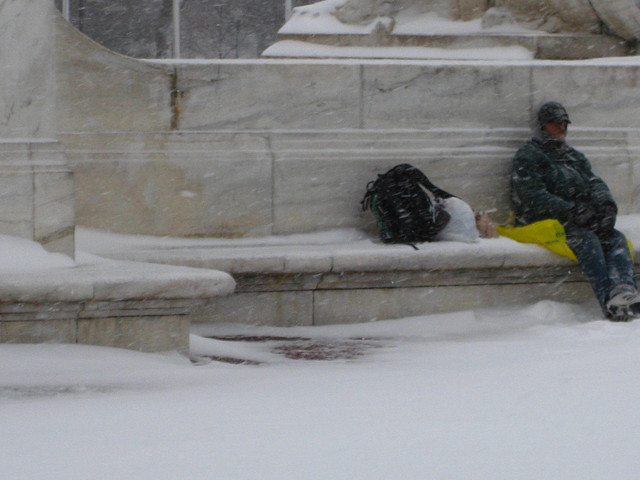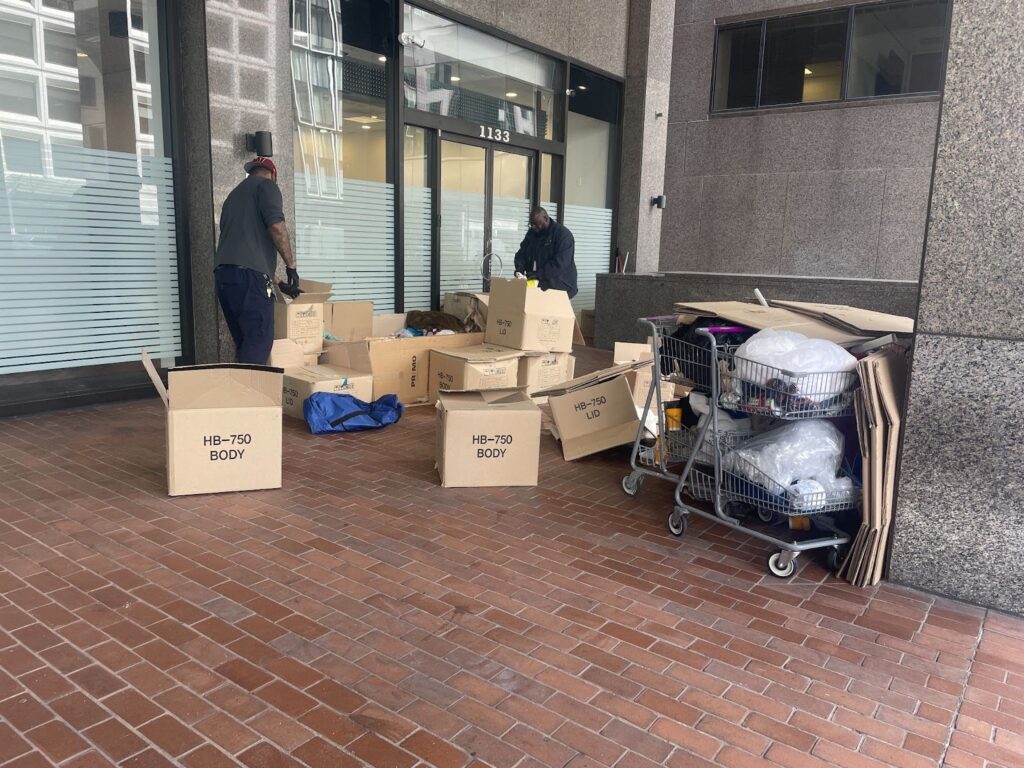Those of us who feel we have been screaming in the wilderness for decades about the moral implications of homelessness can rest our voices. The numbers are in. And if you are in any way concerned with how your tax dollars are being spent, you might want to pay attention to these numbers. The data comes to us from an analysis conducted by The Advisory Board Company — an international health care research, technology, and consulting firm–at the front door of the District’s system for responding to chronic homelessness.
$19 million. That is the price tag for a single year of emergency services provided to more than 800 of Washington’s most vulnerable, chronically homeless people.
“Chronic homelessness” encompasses people who have been repeatedly without housing for years and have at least one, often many, disabling medical conditions. The group studied had 4,702 emergency room visits; 2,544 ambulance rides to the hospital; 2,346 interactions with the police; 2,154 in-patient hospitalizations; and 1,696 uses of a crisis service (such as suicide prevention).
The average annual cost to provide these emergency services was $40,843 per person. For people like Ricky, a 51-year-old man who has struggled with schizophrenia for most of his life, medical costs alone were $208,908.
Yet, on average, the cost to provide Permanent Supportive Housing (PSH) – including professional case management – is only $20,500. Yes, it costs half as much to house a chronically homeless person as it does to leave them on the street. PSH has been proven to reduce costs by speeding recovery and sharply reducing interaction with emergency services.
At a Feb. 27 briefing at the Wilson Building, Shana Palmieri, Director of the Behavioral Health Division at The George Washington University Hospital, said this about PSH:
“Permanent Supportive Housing is a health care solution. It is a healthcare intervention. It will reduce the cost of treatment and increase its effectiveness. If there was one prescription we could write at the time of discharge from our hospital, it would be a prescription for Permanent Supportive Housing.”
At that same briefing, Waldon Adams, shared his decades’ long struggle with chronic homelessness. He experienced the onset of mental illness as a child. While in the U.S. Navy he was injured in an explosion, which in addition to physical damage caused Post Traumatic Stress Disorder (PTSD). Now struggling with two mental illnesses, Waldon became addicted to crack cocaine. On more than one occasion he received emergency in-patient detoxification services. He was repeatedly and involuntarily committed to psychiatric hospitals. Along the way Waldon contracted HIV. A heart infection nearly killed him. Treatment for both required long in-patient care.
For the past several years, Waldon has lived in a PSH unit. He has been clean and sober for six years, even kicking his addiction to cigarettes. He is training for his 13th marathon. “I had no idea I was costing you so much,” Walson said from the panel. “I felt so bad about it that I became an advocate for PSH.”
D.C. Deputy Mayor for Health and Human Services Brenda Donald said “The administration of Mayor Muriel Bowser is totally committed to ending chronic homelessness. And we expect to be one of the next cities to declare an end to veteran homelessness.”
Thanks to The Advisory Board Company, we now know that anything short would be a tremendous waste of taxpayers’ dollars.








